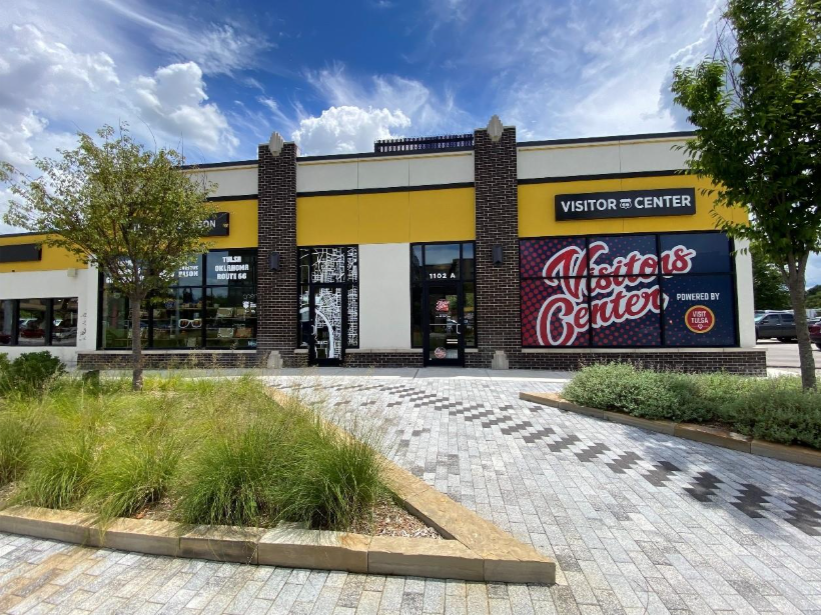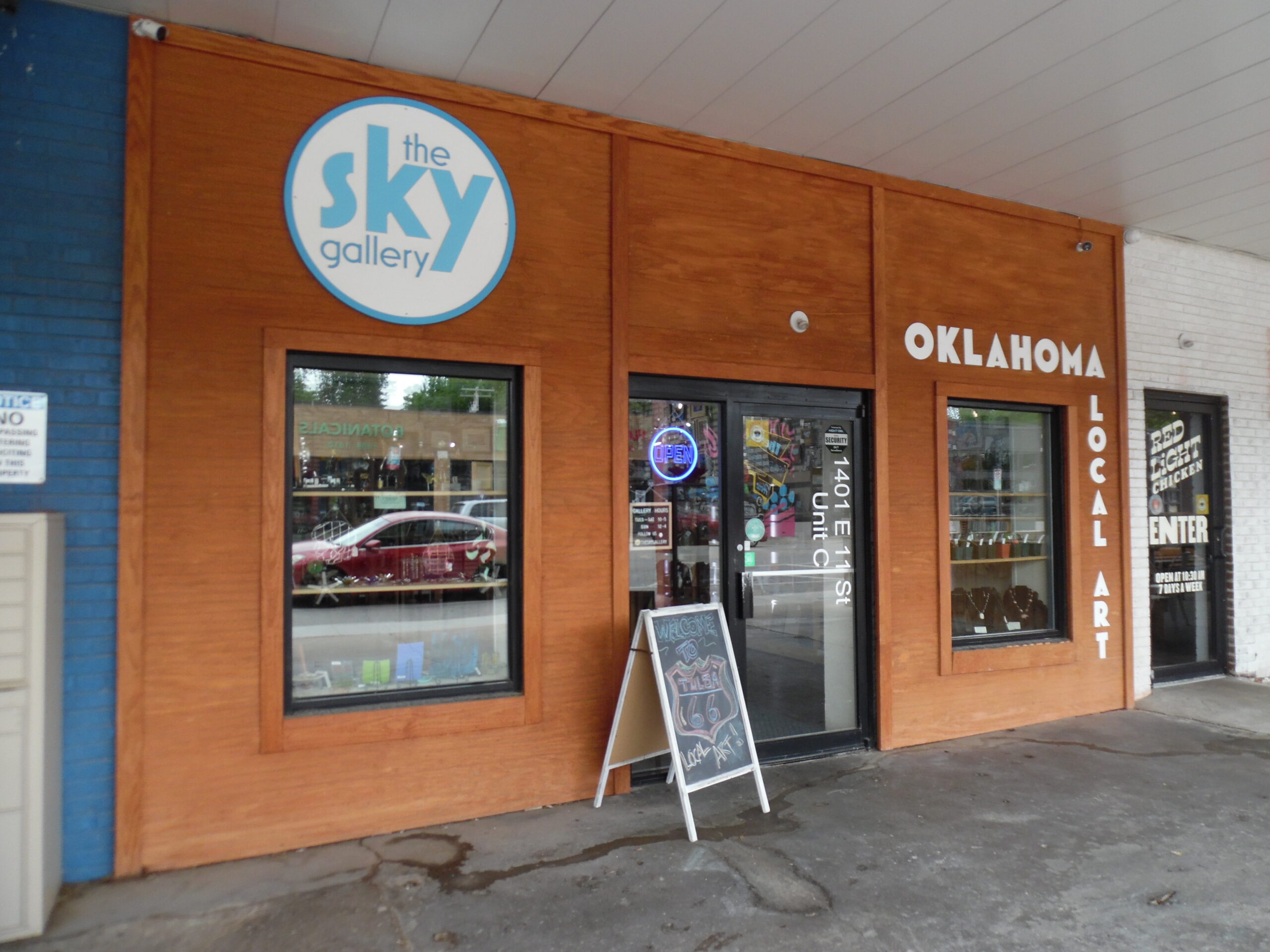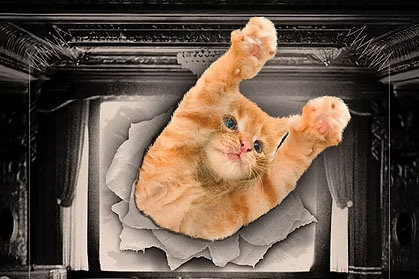Tourism is a budding industry in Tulsa. After being officially named the Capital of Route 66 on July 1, 2024, an influx of both national and international tourists has been seeking to experience what Tulsa has to offer.
In an interview with the Visitors Center’s Kenny Smith and Jonathan Huskey, TCC Connection explores the dynamics of the tourism industry and the infrastructure to accommodate the rapid growth of the area.

TCC Connection: Can you share how Visit Tulsa’s core mission has evolved in recent years, especially considering record-breaking visitor spending?
Visitors Center: I think the core mission has always been the same, which is to drive visitors to come and experience Tulsa, spend their money here, stay in our hotels, and experience everything we have to offer. In recent years, there has been a more strategic focus on how to do that by having more cohesive messaging. The branding is consistent across all of our different verticals, and we just kind of make sure that everything we do, whether it is music-related, sports, or business, pushes us towards the same goal, which is to bring more people to Tulsa and increase Tulsa’s exposure, both domestically and internationally. We want to be known as an international destination, so these high-caliber events help to further that cause.
TCC Connection: Tourism Economics shows Tulsa’s visitor numbers rose 300,000 year-over-year. What strategic priorities are driving this sustained growth?
Visitors Center: I think what we are seeing is a result of these intentional initiatives to make sure we are all on brand, that we really lean into our strengths. Right now, Route 66 is a huge part of our identity as a city. We are now officially the capital of Route 66, so we are leaning into that and making sure that people associate Tulsa with Route 66.
We are also leaning into our emerging identity as a sports destination as well as our music culture, which has the best of both worlds; a rich deep history, and also, we have a lot of artists and musicians that are kind of the cutting edges of some of their genres. I think it is just kind of an effort to make sure we are all conveying the right message in our opportunities.
TCC Connection: Tourism supports 16,000 jobs locally. What efforts are in place to ensure equitable distribution of tourism benefits across different Tulsa neighborhoods?
Visitors Center: When revenue comes in from tourism, it is really distributed citywide. I don’t think you can find an industry that isn’t touched somehow by tourism. There are jobs such as hotel workers, which interact directly with tourists, and there is an indirect subsection of jobs, which may not interact directly with visitors but are influenced by tourism, and that can get into law enforcement at times, as well as venues. We also have induced jobs, which are jobs created essentially because of the money brought in due to tourism. These jobs may not interact with tourists at any given day or time, but they exist because of the revenue generated by visitors and tourists coming into town.
TCC Connection: Tulsa hosts a wide variety of festivals and events, from the State Fair to specialty fests and global music acts. How does Visit Tulsa decide which to spotlight or invest resources to support?
Visitors Center: It is not so much of a picking and choosing of events that are happening. Our great sales teams travel nationwide and internationally to find events that need homes. They sell Tulsa, and once they come here and experience what we have to offer as a city, they stay. Most of the time, when we host such events, the people involved often have glowing things to say about how we have been able to provide for them and service their needs and desires to put on a good event.
The success we have had increases our level of credibility, which in turn increases our level of support, even by sometimes non-tourism-related businesses. It is [positively] impacting on the quality of life of people here as well as the people that visit.
TCC Connection: Tulsa’s food scene has gained national traction (e.g., Mother Road Market’s accolades). How does culinary tourism fit into your promotional efforts?
Visitors Center: We have been very well received for three years in a row for being a top food home in America, and that speaks to Mother Road Market specifically. When I meet people that have been in Tulsa for a few days, they are generally surprised that our food scene is vibrant. We are not pigeonholed into one type of food, and we encourage people not to just assume that it’s all going to be chicken, fried steak, and hamburgers. There’s great soul food, Mexican food, barbecue, and Asian food. Tulsa really is kind of a melting pot, and the food scene here is criminally underrated. We’ve got everything you could want, and we can do it just as great, if not better than where you’ve had it anywhere else.
TCC Connection: What countries or regions are emerging as top international markets for Tulsa tourism, and why?
Visitors Center: United Kingdom, Germany, France, Sweden, and Switzerland. A lot of this is thanks to Route 66, which is such an international icon and a huge part of our identity as a city. It is a touchstone for people outside of the United States. When they come to visit, they want to experience classic Americana, and that means Route 66 for many people.
TCC Connection: What steps is Visit Tulsa taking to attract more international visitors, and how do these efforts differ from domestic tourism strategies?
Visitors Center: Our Tourism Tulsa president, Renee McKenney, went on a trip to European countries such as Italy, Germany and Turkey, telling Tulsa’s story about Route 66 specifically with the intention of raising our profile internationally.
A lot of it is really a secondary benefit of the events we hold. There is a concerted effort to find events that are international in origin and bring them here. When we have events that bring international field competitors, that’s news around the world.
TCC Connection: How is Tulsa preparing for potential international attention ahead of Route 66’s 100th anniversary in 2026?
Visitors Center: We have been looking at 2026 and the centennial for years now, and we have known that with our standing as the capital, all eyes are on us to put together a good celebration. We just announced recently about ‘Tulsa Route 66 Capital Cruise: a world classic car parade’ that is going to go down portions of Route 66 in town. There are going to be 3,000 classic cars in the parade from all different decades. We anticipate 200,000 spectators, and we look forward to that on May 30, 2026.
TCC Connection: By 2026 and beyond, what legacy do you hope the centennial of Route 66 and Tulsa’s ongoing infrastructure gains will leave on the city’s tourism identity?
Visitors Center: I would love for the national identity of the Route 66 centennial celebration to be what we do here, because what better place than the capital? That is truly what will continue to pay dividends. The [number] of eyes and attention that it will bring [from] around the world will only peak curiosity for people, which will bring in more visitors and businesses that are looking to visit or relocate potentially. It will open us up to this whole kind of strata of events and businesses that a lot of places aren’t privy to.
The interest of Route 66 won’t go away just because the 100th year anniversary came and went. It will disburse more enthusiasm for Tulsa, and it should if we do it right.
TCC Connection: What is your vision for both local and international tourism in Tulsa five years from now?
Visitor’s center: We are on a path and have some momentum now that is unique around the country. I would just love to see us mentioned in the same strata as what people see as the top cities in America. I think that there is groundwork in place to make sure that it continues. The sky really is the limit.
For more information about the Visitor’s Center,
visit https://www.visittulsa.com/plan-your-visit/visitor-center/




